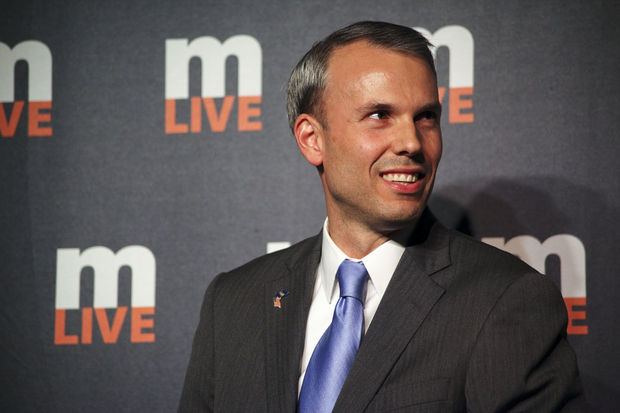When smoking pot can mean losing your kids
Months before she and her husband decided to get pregnant, Maggie stopped using medicinal marijuana to treat depression and post-traumatic stress disorder.
But five months in, “the morning sickness got really bad,” said Maggie, who asked that her full name not be used to protect her family. “I lost 20 pounds while pregnant. I was really, really sick,” she said.
Maggie had hyperemesis gravidarum — really bad morning sickness. Her doctor prescribed antiemetics (nausea medication), but the pills were expensive and Maggie was worried about side effects. So she tried a trick a dozen other moms suggested: She ate some cannabis.
“I gained some weight. Things got back to normal,” said Maggie.
But the decision would render her a bad mother in the eyes of Michigan state social services.
Maggie had planned a homebirth, but there were complications, and after three days of labor she went to the hospital. That raised a red flag, and she was labelled high risk, she recalled—so a drug test was administered. She and her newborn tested positive for THC, the chemical agent in cannabis. That positive test result led to a months-long investigation by Child Protective Services (CPS), despite the fact that Maggie is a registered medical marijuana user and her baby was healthy.
Recreational and medicinal marijuana use has been decriminalized in some way in
29 states, but that often doesn’t apply to family court and social services. The result, say drug reform and reproductive rights activists, is a two-tiered legal system that holds parents to a different standard, putting them at risk of losing their kids if they use marijuana, even legally.
“There’s an extra layer of surveillance” for parents, said Jess Cochrane, a drug policy reform activist and co-founder of the Family Law and Cannabis Alliance, an advocacy group that supports parents dealing with marijuana-related CPS investigations. “There are laws in these states that say that if you’re an adult you can’t be punished for marijuana use. If you’re parenting or become pregnant, that’s not the case.”
“It’s a third rail issue,” said Cochrane. “People, understandably, don’t want to be viewed as promoting drug use around kids.”
Studies show that marijuana use during pregnancy is no worse than drinking a glass of wine or smoking a cigarette, said Dr. Carl Hart, a psychiatry professor at Columbia University who studies drug use and treatments.
“When we think about women smoking tobacco, we don’t want that to happen, but we don’t take their children away,” said Dr. Hart.
Maggie says she had no idea she was being drug tested at the hospital until she was told she’d failed and would be reported to CPS while in labor. She says she received her first visit from the agency the day she brought her newborn son home.
She says she had to submit to hours of questioning, and ultimately, had to sign legal documents promising not to breastfeed her son in case her breast milk contained THC.
The Michigan Department of Human Services declined to comment, saying they do not speak to specific CPS cases.
“I was not using cannabis regularly,” Maggie said. “I was trying to make that work, trying to do the best for my son.” But she says, the agency would not budge.
“It was just grab the kid and run.”
Ultimately, Maggie’s case was closed without her son being taken out of her custody. That was not the case with Steve and Maria Green.
The Greens are medical marijuana users in Lansing, Michigan. Maria uses cannabis to ease multiple sclerosis symptoms, and Steve uses cannabis to treat epilepsy. Maria is also a licensed caregiver, meaning she can grow marijuana. CPS workers were alerted to the Greens’ marijuana use by Maria’s ex-husband during a custody dispute over a child from a previous marriage.
According to
Michigan’s medical marijuana law, users can’t be denied custody of their children “unless the person’s behavior is such that it creates an unreasonable danger to the minor that can be clearly articulated and substantiated.”
“Normally they do a treatment plan, try to work with the family,” said Steve Green. “In our case it was just grab the kid and run.”
CPS petitioned to remove 6-month-old Bree, the only child living with the Greens full-time, when they refused CPS workers access to their grow room without a court order, citing a provision within Michigan’s medical marijuana law. Ultimately, an attorney referee (they use those instead of judges in some cases in Michigan) allowed CPS to take Bree, reasoning that it was dangerous to have kids living in a home where marijuana was being grown, even legally.
Bree was originally going to be placed in foster care, but was allowed to go live with her grandmother a few hours away.
“It’s hard to explain in words what it felt like,” said Steve. “My baby’s room was upstairs. My wife couldn’t go up the stairs. It was like living a nightmare. You can’t imagine that can happen.”
After a six-week battle with the Michigan Department of Human Services, Bree was returned to her parents’ home with a 30-day treatment plan. She’s been back for a year now, but CPS still follows up with Steve and Maria.
“I think we suffered a little bit of PTSD,” said Steve. “I have a panic attack if Bree trips and falls; we’re under such a high level of scrutiny. They’ll build a case history. If there’s another incident, they’ll use that in their favor.”
A subsequent independent investigation from the Michigan Office of Children Ombudsman found that Child Protective Services exercised “poor social work judgment” by requesting that Bree be removed from the home — there was not enough evidence that the Greens’ custody presented “a substantial risk of harm.” The report also found that CPS violated the state’s marijuana law by removing Bree without determining whether or not the Greens were in compliance with the law. The department could have obtained a court order to gain access to the grow room.
The Michigan Department of Human Services responded to the findings in the report, saying Child Protective Services “could not verify the safety of the children,” since the Greens did not give them access to the home and there had been a previous criminal charge brought against Steve Green (that charge was ultimately dropped.) The agency also cited “credible” statements from the children that pot had been smoked in their presence and the infant’s positive test for THC as evidence that the Greens “were not acting in the best interest of the children.”
Michigan state Department of Human Services declined to comment on the Greens’ specific case or on the ombudsman’s report for this article.
A slippery slope
While these cases were ultimately closed, advocates for parents say that just having a CPS investigation opened can bring long-term consequences. A positive THC test can sometimes lead to an automatic finding of abuse and neglect against a parent. That’s what happened to several of Indra Lusero’s clients in Colorado, where recreational marijuana is legal for adults.
“It’s so scary on the client end,” said Lusero. “From the bureaucracy side, it’s just flipping switches, but for the families, they’re terrified and traumatized.”
Lusero’s clients were able to appeal and have the abuse and neglect findings overturned, but even so, they would appear in a background check, said Lusero.
In some states such a finding can also land a parent on a registry of child abusers. They can carry that label until well after their children are out of the house. Advocates for parents say part of the problem is mandatory reporting laws that compel citizens to alert CPS of parental marijuana use, whether or not there are other signs of abuse.
It seems that may have been the case with Maggie. While the hospital where her son was born, Spectrum Health Butterworth Hospital, was unable to comment on her case directly, they said they follow mandatory reporting laws in cases where mothers test positive for THC.
“The current law considers marijuana as a controlled substance. It’s listed as a substance we have to report,” said Bruce Rossman, a spokesman for the hospital.
As far as which mothers get drug tested, Rossman said decisions were made on a case-by-case basis.
“It’s up to the discretion of the physician, based on the facts of each case,” said Rossman. “There are certain situations where a drug test is medically necessary so the physician can provide the best possible care for the patient and her baby.”
He could not comment on why Maggie was given a drug test.
Social workers and some of the mandatory reporters “haven’t quite figured out how to make it work with new laws,” said Indra Lusero, the Colorado-based attorney.
In Michigan, “medical marijuana is not dealt with specifically in CPS policies addressing parent use of substances,” said Bob Wheaton, spokesman for the state Department of Human Services. “Our policy just says use or abuse of substance in and of itself does not constitute child abuse or neglect … CPS has to determine if the use interferes with childs’ safety; whether the parent can safely care for the child.”
Wheaton said the department was “currently taking a look at the policy and considering drafting policy that would address medicinal marijuana.”
The Family Law and Cannabis Alliance has drafted language specifically addressing the issue to include in new marijuana legislation, stating that if cannabis use is consistent with state law, this factor alone should not form the basis for an investigation or restricted custody rights. But they’ve had trouble getting their language adopted by marijuana policy reformers. Activists worry it could harm legalization efforts.
“There’s concern that any protective provision of parental rights could result in opposition to the bill,” said Jess Cochrane.
Now, parents who are marijuana users could face bigger challenges in Colorado. A ballot initiative going up for vote on Nov. 4 seeks to amend the state constitution by defining a fetus as a “person,” in the criminal and wrongful death legal code. Drafters of Amendment 67 say the law would protect pregnant women and their unborn children by making it possible to charge someone with homicide for a violent act that results in killing an unborn child.
Marijuana reform and pro-choice activists worry the amendment could lead to women having criminal assault charges brought against them if they use drugs while pregnant.
“If the personhood initiative passes, a lot more could happen that would lead to pregnant women being locked up during their pregnancy,” said Cochrane.
http://fusion.net/story/24159/when-smoking-pot-can-mean-losing-your-kids/
















